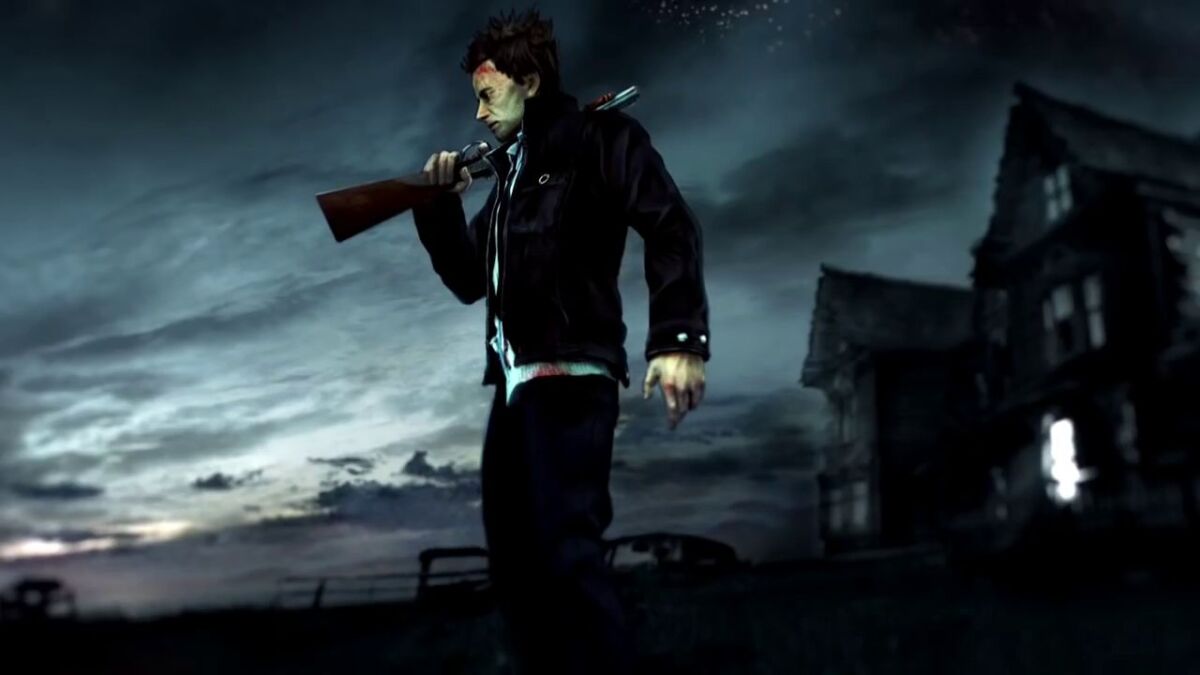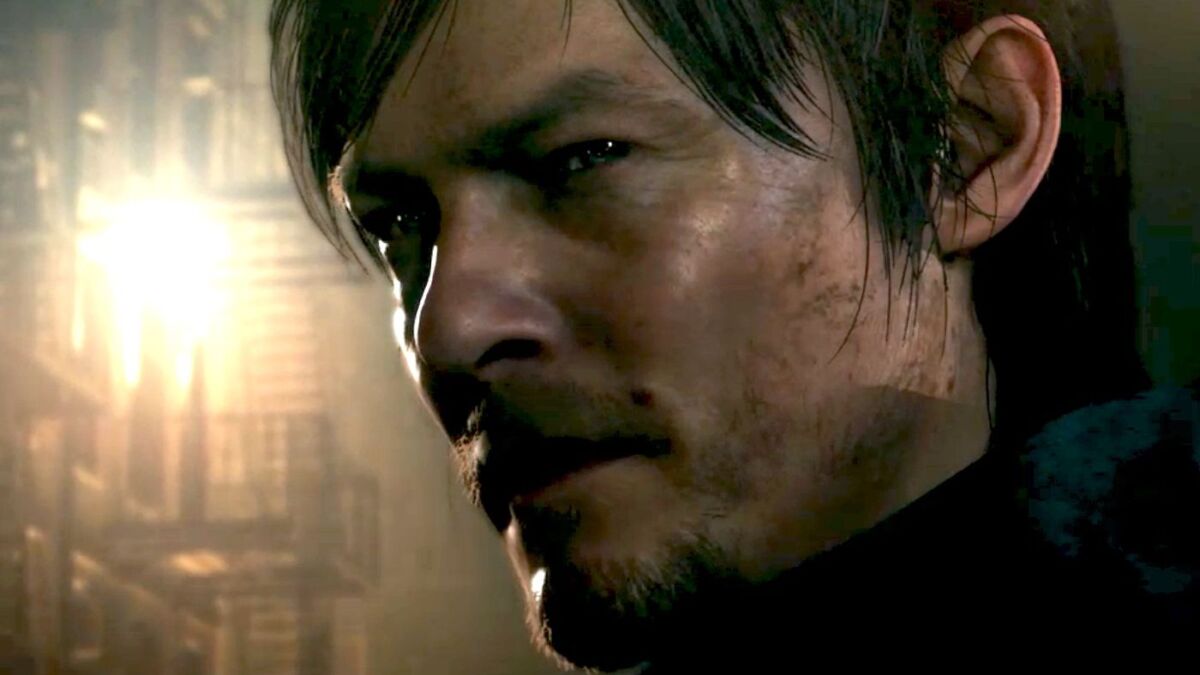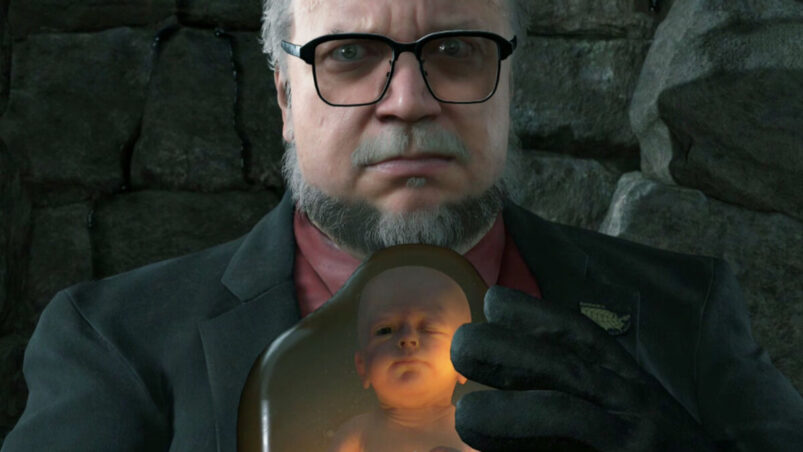Guillermo del Toro has been in the filmmaking industry for over 40 years now, directing movies like Pan’s Labyrinth and Crimson Peak while also writing screenplays like Don’t Be Afraid of the Dark and The Witches. With multiple awards and nominations to his name, his fame as a skilled filmmaker is well-deserved, but the director and writer has also boasts quite a history in the gaming industry.
If this surprises you, that’s most likely because only one game del Toro was involved in ever made it to store shelves, and it wasn’t even the one he had heavy involvement in. The acclaimed filmmaker has described himself as a “lifelong avid gamer” and even proclaimed on Twitter that he believes video games are a form of art, but while he deeply loves games, he can’t seem to get any of his video game passion projects past the production stage.
In 2015, Guillermo del Toro announced that while he’s open to his works getting the video game treatment, he no longer plans on ever returning to the gaming industry. “I have decided I will never again get involved in video games,” he said. “Otherwise, I’ll join someone and his house will explode, or something.”
The latter part of his statement was obviously poking fun at how his gaming projects constantly get canceled, but it does make you wonder: how does such a famed director have so many unrealized games?
Sundown

In May 2006, it was announced that Guillermo del Toro, best known at the time for the superhero films Blade II and Hellboy, was working with developer studio Terminal Reality on a game called Sundown, made to be released for the Xbox 360 and PlayStation 3. The IP originated with Terminal Reality, but del Toro received TV and movie rights, which suggests both parties had big plans for the franchise.
In Sundown, you would play as an average person trying to survive an apocalypse of zombies and other monsters, and to do so, you’d need to form alliances and make it through scary challenges. At the time, games like Alan Wake and The Last of Us had yet to come out, and del Toro believed a hybrid of narrative and gameplay would be the gaming industry’s future.
“We want to create a real beginning, middle and end to the game and to each set piece of the game too,” the director said. “I want to make some of the atmospheric elements in the game very, very scary.”
Del Toro seemed like the perfect co-developer, as while he was mostly known by American audiences for superhero films, he also made the Spanish-language horror films Cronos and The Devil’s Backbone, and the American horror film Mimic. Terminal Reality also seemed like the perfect studio as they were best known for the Bloodrayne series and Aeon Flux, and even made the survival horror game Blair Witch Volume I: Rustin Parr, based on the film The Blair Witch Project.
Unfortunately, the director’s involvement was short-lived. In November 2006, del Toro announced that he was dropping out of Sundown’s development, and while he didn’t discuss why when he posted on a fan message board, it was reported that he “apparently was having some bad experiences with the video game industry.”
Little remains known about the game, but years after its cancellation, del Toro said that “Sundown was eerily similar to Left 4 Dead,” a survival zombie game released in 2008, two years after Sundown’s announcement. Given how successful Left 4 Dead was — boasting an 89 on Metacritic and launching a series that’s sold over 12 million units — Sundown could’ve enjoyed the same fate had it been released. Maybe even more, too, as the PS3 sold over 87.3 million units, and Left 4 Dead was only released on PC and Xbox 360.
2008 did see the release of Hellboy: The Science of Evil, a video game based on del Toro’s 2004 Hellboy film. The director said that he was involved in the “crucial stages”, though not as involved as he would have liked, and much like many movie tie-in games, the game received negative reviews from critics, earning a 44 on Metacritic. Fortunately, del Toro would get an opportunity to be heavily involved in another game, one that was announced only two years later.
Insane
In December 2010 at the Spike Video Game Awards, a forty-second teaser was played announcing, “A new terror from Guillermo del Toro. Insane. Coming 2013.” The trailer didn’t show much, just creepy imagery with glitchy effects set to unsettling music, but it also told us that the game would be developed by Volition and published by THQ.
Volition was best known for the Red Faction shooters and Saints Row action-adventure games, both of which were franchises also published by THQ, and THQ was best known for TV and movie tie-in games like Finding Nemo, Piglet’s Big Game, and SpongeBob SquarePants: Battle for Bikini Bottom.
It seemed like del Toro had very similar goals to the ones he had during Sundown’s development. Insane was another horror game, and del Toro said, “It’s really weird, but it’s Lovecraftian in a very sick way, which I like. It’s truly, truly entertaining. Full of action, but also a very shocking game.” Just like Sundown, the director was granted rights for any filmed entertainment products, and the director also had big ambitions with the game itself.
“With this new series of video games, I want to take players to a place they have never seen before, where every single action makes them question their own senses of morality and reality,” del Toro said. Yes, another thing that was confirmed was that Insane would be the first of a planned trilogy, which might’ve been the kiss of death for the unreleased franchise. After all, Advent Rising and Too Human were also announced as the first entries of a trilogy, and neither of those games ever got sequels.
Unfortunately, in August 2012 (a year before Insane’s announced release year), THQ announced Insane’s cancellation, with the IP rights transferring to del Toro. No reason was ever officially disclosed, but we might need to put our tin foil hats on for a minute because just four months later, THQ announced it was filing for bankruptcy and selling off its studios and games in development. In 2015, del Toro would also go on to say, “I am the albatross of video games. I make a game for THQ, and THQ goes bankrupt.”
Was this unintentional confirmation that THQ’s closure was the main reason why Insane never pushed through? If there’s any other reason, neither party seems interested in disclosing, but del Toro certainly doesn’t seem like he has any bad blood with THQ. “I learned a lot from my experience at THQ,” he said, reminiscing about his time with Insane’s production. “I did. It changed the way I see narrative. We put two years of work in THQ. It was insane.”
Silent Hills

On August 12, 2014, a game demo called P.T. was released for free on the PlayStation 4. By the end of the demo, it was revealed P.T. was a playable teaser for a new Silent Hill game called Silent Hills. This would be the ninth main entry in the extremely popular survival horror franchise, and would star The Walking Dead’s Norman Reedus and be directed by Hideo Kojima and Guillermo del Toro, as the two also directed the playable teaser.
Neither del Toro nor Kojima had been involved in the Silent Hill games prior, but by 2014, Guillermo del Toro had only grown more acclaimed as a director and writer, garnering numerous nominations and awards for Pan’s Labyrinth, Hellboy II: The Golden Army, and Pacific Rim, as well as being one of the screenwriters for The Hobbit films.
Hideo Kojima, on the other hand, was an absolute household name in the gaming community, as he was responsible for games such as Snatcher, Policenauts, and the Metal Gear Solid series, all considered some of the best in their respective genres. His games also greatly integrated cinematic storytelling, with Metal Gear Solid 4 ending with a 71-minute sequence of cutscenes and no gameplay between them, so really, he and del Toro seemed like the perfect pair for a new Silent Hill game.
This was only exemplified by the P.T. game demo, which was lauded as one of the best marketing tactics for a video game, as well as simply being a great game demo. Forbes called it “one of the cleverest marketing gimmicks in the history of video games” and that “perhaps the best thing about P.T. however is just how scary it is, even though it’s just a teaser[.]” Eurogamer wrote that P.T. was “more than a teaser — it’s a great game in its own right.” The demo was also downloaded over a million times, and with such popularity and critical praise, it seemed Silent Hills was destined to be an absolute hit when it was released.
It was never released. The game was to be published by Konami, the publishers of game series such as Castlevania, Metal Gear Solid, and of course, Silent Hill, and would be made by their in-house production team called Kojima Productions. In March 2015, however, it was announced that Hideo Kojima would be leaving Konami after Metal Gear Solid 5, and one month later, Silent Hills was officially canceled by Konami.
Kojima’s departure from Konami has a long history behind it, one that’s worthy of its own article, but it did mean third time wasn’t the charm for Guillermo del Toro as, once again, another one of his games would never see the light of day. Not just that, but P.T. was also delisted from the PlayStation Store the same month Silent Hills was canceled and remains impossible to reinstall, meaning the one success del Toro had with gaming can no longer be accessed unless you’ve already downloaded it.
Life After P.T.

In 2015, Guillermo del Toro stated that he would never get into video game development again. Nine years later, del Toro has kept that promise, with his only involvement in a video game being that he provided his likeness for a character named Deadman in the 2019 game Death Stranding.
While the game was directed by Hideo Kojima and starred Norman Reedus, del Toro was not creatively involved in the game, adamant in his claim to never spearhead a video game again.
Still, it’s not like del Toro has been doing nothing since Silent Hills’s cancelation. His 2017 film The Shape of Water won the Academy Award for Best Picture, his 2021 film Nightmare Alley was nominated for the same award, his 2022 film Guillermo del Toro’s Pinocchio won the Academy Award for Best Animated Feature, and his Netflix anthology show Guillermo del Toro’s Cabinet of Curiosities featured episode directors like Jennifer Kent, Catherine Hardwicke, and David Prior.
With such a successful filmography, Guillermo del Toro has proven himself over and over again to be a master of visual storytelling, but video games are a form of visual storytelling, too. It’s unfortunate and strangely coincidental that all of the director’s efforts to heavily involve himself in a game were never able to get so much as a proper trailer. It’s an unfortunate turnout, but while he’ll never go back again, del Toro doesn’t seem to regret the time he’s spent in the gaming industry.
“I was in an apprenticeship,” he said. “I know some of the tricks, or the stuff that I wanted to learn, I learned. Then I went to the side of Kojima-san, because he’s a master, and I can gladly say that we are friends and I love his work and I will continue learning from him as a friend. But I am not… if I join another video game, World War III will start.”
READ NEXT: Ranking Every Tony Hawk Game From Worst To Best
Some of the coverage you find on Cultured Vultures contains affiliate links, which provide us with small commissions based on purchases made from visiting our site.

